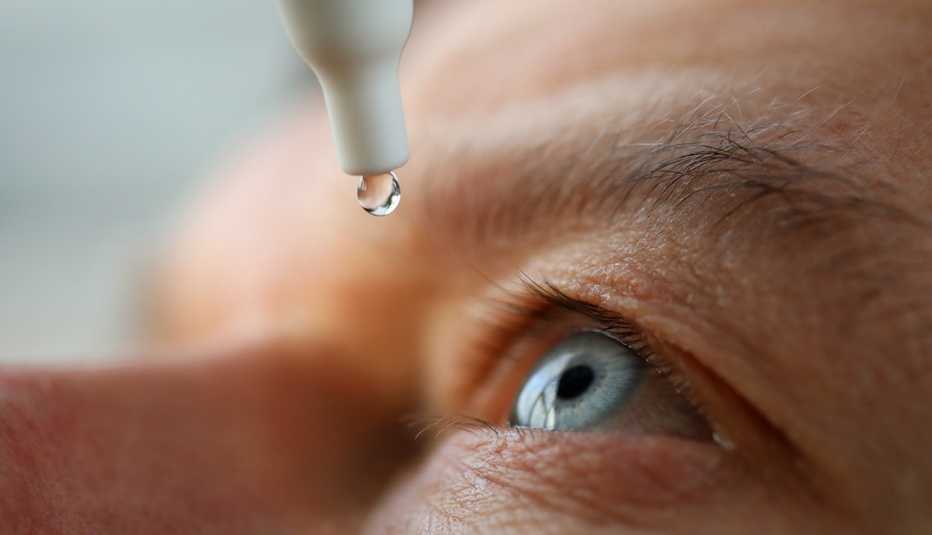AARP Hearing Center


Toni Wright, 54, a beauty industry professional from Pittsburgh, Pennsylvania, was forever squinting at her computer screen and cellphone. In restaurants, especially those with low lights, she was the one holding the menu as far away as her arm could reach. Diagnosed with presbyopia — age-related blurred near vision — when she was 50, Wright says, “I needed to have reading glasses with me at all times and almost panicked if I didn’t.”
Presbyopia is estimated to affect 2 billion people globally, according to the American Academy of Ophthalmology (AAO). But there is good news for all the squinters among us: In October, the U.S. Food and Drug Administration (FDA) approved the first (and so far, only) eye drops that treat presbyopia. The eye drops, called Vuity, contain pilocarpine, which has been used for around 120 years to treat glaucoma. This is the first formulation to target presbyopia specifically.
Allergan, a subsidiary of AbbVie, rolled out Vuity on Dec. 9. Available by prescription only, Vuity works very simply. Itslightly reduces pupil size by constricting certain muscles, explains AbbVie advisory board consultant Marguerite McDonald, M.D., a clinical professor of ophthalmology at both New York University and Tulane University. The constriction allows for improved up-close vision. Approved for use once daily, it works for up to six hours. It costs about $86 for a 2.5 milliliter bottle (about a 30-day supply), depending on the pharmacy you visit.
Wright, who participated in the clinical trial for Vuity, would put the drops in her eyes in the morning, and she found that the effect kicked in by the time she got to work. McDonald says, on average, it should start working within 15 minutes. “I could see on my computer without struggling or needing glasses, and it lasted throughout the workday,” Wright reports. She says she felt no negative side effects. Vuity reports that users may experience temporary problems when changing focus between near and far objects.
In its development of the drops, the company found that participants achieved a “three-line gain or more reading a near-vision eye chart without losing more than one line in a distance vision eye chart at Day 30, three hours after dosing.”



































































More on health
10 Everyday Things You Can Do to Protect Your Sight
Stick with these healthy habits to lower your risk of eye problems as you age